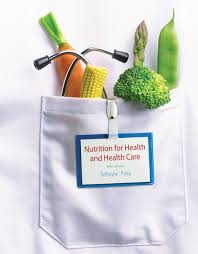Test Bank For Nutrition for Health and Health Care 5th Edition by Linda Kelley DeBruyne
Digital item No Waiting Time Instant DownloadISBN-13: 978-1133599111 ISBN-10: 1133599117
In Stock
Original price was: $65.00.$35.00Current price is: $35.00.
Test Bank For Nutrition for Health and Health Care 5th Edition by Linda Kelley DeBruyne
Chapter 3 – Carbohydrates
True/False
1. Whenever carbohydrate is available to the body, the human brain depends exclusively on it as an energy source.
2. Most dietary fiber provides little or no energy.
3. A client consumes 2600 kcalories per day and 50 grams of carbohydrate from concentrated sweets. This client’s sugar intake falls within the same range as added sugar intakes for the USDA Food Patterns recommendations.
4. Experts agree that moderate amounts of sugar in the diet may pose a number of major health risks.
5. A client consumes 2000 kcalories per day and 200 grams of carbohydrate. This person meets the current dietary recommendations for carbohydrate intake.
6. Cindy consumed 1 cup of vegetables, 1 cup of fruit, 5 ounces of whole grains, and 1 cup of legumes during the day. Cindy met the DV recommendation for fiber for the day.
Multiple Choice
1. The main function of carbohydrates in the body is to:
a. furnish the body with energy.
b. provide material for synthesizing cell walls.
c. synthesize fat.
d. insulate the body to prevent heat loss.
2. High-fructose corn syrup and fruit juice concentrate are examples of _____.
a. starches
b. disaccharides
c. added sugars
d. fibers
3. The _____ are the basic units of all carbohydrates.
a. monosaccharides
b. disaccharides
c. polysaccharides
d. sucrose molecules
4. Three monosaccharides important in nutrition are:
a. glucose, lactose, and fructose.
b. fructose, glucose, and sucrose.
c. maltose, fructose, and lactose.
d. galactose, sucrose, and lactose.
e. fructose, glucose, and galactose.
5. The primary source of energy for the brain and nervous system under normal conditions is:
a. sucrose.
b. amino acids.
c. fructose.
d. glucose.
e. fatty acids.
6. The hormone that moves glucose from the blood into the cells is:
a. glucagon.
b. insulin.
c. testosterone.
d. sucrose.
7. Which of the following does not come exclusively from plants?
a. glucose
b. maltose
c. fructose
d. galactose
8. Fructose is:
a. the sweetest of the sugars.
b. known as milk sugar.
c. abundant in whole grains.
d. also known as dextrose.
9. Fructose occurs naturally in:
a. bread.
b. milk.
c. meats.
d. fruits.
10. Which monosaccharide is found most often in nature as a part of a disaccharide?
a. glucose
b. fructose
c. maltase
d. galactose


Reviews
There are no reviews yet.